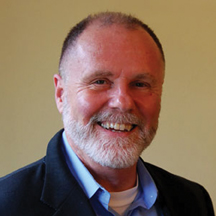 I wrote what follows a week ago, when I assumed that Donald Trump would not win this election, and the point of the column was to talk about taking a “Trump detox” to undo some of the damage he has already done to the soul of our country. I can’t recall ever seeing a presidential election that was as destructive and ugly as this one. It was a dramatic demonstration of how much harm one man’s toxic narcissism can do to an entire nation. The racism, misogyny and xenophobia of Donald Trump; his disregard for the norms of civil discourse; his threats and bullying; his complete indifference to factual reality—I’m convinced that these have all been poisonous to our collective well-being.
I wrote what follows a week ago, when I assumed that Donald Trump would not win this election, and the point of the column was to talk about taking a “Trump detox” to undo some of the damage he has already done to the soul of our country. I can’t recall ever seeing a presidential election that was as destructive and ugly as this one. It was a dramatic demonstration of how much harm one man’s toxic narcissism can do to an entire nation. The racism, misogyny and xenophobia of Donald Trump; his disregard for the norms of civil discourse; his threats and bullying; his complete indifference to factual reality—I’m convinced that these have all been poisonous to our collective well-being.
This year, psychologists invented a new term—“election stress disorder”—to refer to the anger, anxiety, hopelessness, distrust, and other brutalizing effects that characterized this cycle. Our social fabric was already frayed, but Trump further degraded our sense of common humanity. Many people found that they even lost trust in themselves, because this election unleashed a depth of rage and fear that they hadn’t known they could feel before. I certainly found myself speaking and behaving in ways that violate my core values.
But now that he’s won, it is perhaps even more important that we do all that we can to affirm the fundamental values that I know we all cherish. Chief among those values is kindness—toward ourselves and others. None of the following suggestions will fix our broken politics, but they may help us approach that task with renewed energy and clarity.
The first suggestion is just that we pay special attention to our own emotional needs right now. What do you need to renew yourself? Maybe it’s time to take a media fast, or at least limit your exposure. Spend some time in nature. Exercise. Have a massage. Meditate. Listen to yourself. If you’re anxious, let someone know about it. If you’re fearful about the future, share your concerns with someone you can trust.
Second, re-commit to doing all that you can to be the solution that you want to see. Many other people are also exhausted, distressed, and afraid right now. In ways you may never know, your small acts of kindness could reverberate in the lives of others long after this election is forgotten. This time in our history calls for a special quality of heartfulness—the courage to stay engaged, with an open heart, and a renewed commitment to compassion and common decency; and a determination to hold onto our faith in what connects us.
These days I’m trying to practice a simple, but beautiful, ethical maxim: “Give no one cause to fear you.” What small actions can you take to help lessen the anxiety of others and help them feel safer? Here are a few ideas: Be mindful of all the subtle ways in which we dominate or abuse others—self-righteousness, edginess, irritation, and impatience; caustic, sarcastic or withering tones; condescension, ridicule, and humiliation; eye-rolling and sighs; prosecutorial questions, high-handedness, putdowns, and on and on—and make a special effort today to refrain from such behavior. Avoid hostile speech and insulting political arguments on social media. If you drive, refrain from using the horn to “express your feelings,” and use it only when absolutely necessary to avoid a collision. If you’re walking, try this: whenever you pass someone, brief ly make eye contact (don’t stare, as that may convey hostility) smile to acknowledge the other person, and then look away.
Here’s a modern translation of a short poem by Haf iz, which expresses a beautiful vision of how we might all strive to treat one another: “Admit something: Everyone you see, you say to them, ‘Love me.’ Of course you do not do this out loud, otherwise someone would call the cops. Still, though, think about this, this great pull in us to connect. Why not become the one who lives with a full moon in each eye that is always saying, with that sweet moon language, what every other eye in this world is dying to hear?”
Finally, in our politics, let’s remember these words from Ram Dass, “There is no us and them. We’re all us.” That doesn’t mean ‘be nice,’ as in papering over our differences and never saying or doing anything that might ruffle anyone’s feathers. There are many battles ahead, and it is crucial that we find the courage to defend the vulnerable and to speak up for social and economic justice. In that work, it will be vitally important that we look for ways to speak to the best in each other, and that we never forget our common humanity.
Tom Moon is a psychotherapist in San Francisco. For more information, please visit his website http://tommoon.net/
Recent Comments